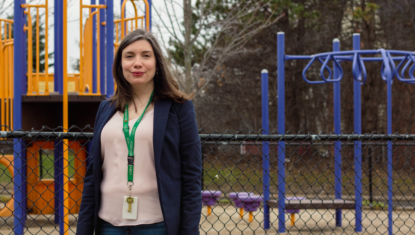12/07/2022
Ottawa, Ontario — Tuesday July 12, 2022

A CHEO Research Institute study has put to rest the idea of prolonged rest when treating a child or youth with a concussion. Gone are the days of sitting alone in a dark room!
Resuming non-contact physical activity 72 hours after a concussion is safe and may also reduce symptoms and the risk of delayed recovery, suggests the first and largest real-world, randomized clinical trial on the topic conducted with children and youth aged 10 to 18.
Led by CHEO Scientists Dr. Andrée-Anne Ledoux and Dr. Roger Zemek, the findings of the clinical trial called PedCARE published in the British Journal of Sports Medicine, received significant national and international media attention, including a cross-country radio syndication run and feature on CBC’s The National.
“The findings of this study should give every health care professional who manages kids with concussions the confidence to prescribe early and controlled return to physical activity, even if they have symptoms. The study confirms that early return to physical activity is safe, can reduce concussion symptoms and reduces the rate of delayed recovery,” said Dr. Ledoux.
Watch the Discovery Minute.
Impacts of concussion on mental health
Dr. Ledoux also helped to answer a question many of our family leaders interested in concussion research sought to have answered: what are the impacts of a concussion on a young person’s mental health?
Ledoux’s population-based retrospective cohort study looked at children and youth aged five to 18 across Ontario over a 10-year period. The findings published by JAMA Network Open indicate that young people who sustain a concussion are at a 40% higher risk of mental health issues, psychiatric hospitalization, and self-harm compared to those who sustain an orthopaedic injury. This was the first study of its size and length of time to examine the association between a concussion and subsequent mental health issues amongst children and youth with no prior mental health visit in the year before their injury and no prior traumatic brain injuries in the five years before their injury.
The study’s findings should influence how physicians and families assess children and youth post-concussion.
“During concussion follow-up visits, it’s extremely important for physicians to screen for mental health issues and factors that might predispose children to a mental health problem. By intervening early and providing children and adolescents with the right tools to cope and adapt to the trauma and symptoms of a concussion, we can help them become more resilient and prevent the impacts of long-term mental health issues,” said Dr. Ledoux.
Read the full 2021-2022 CHEO Research Institute Annual Report.
